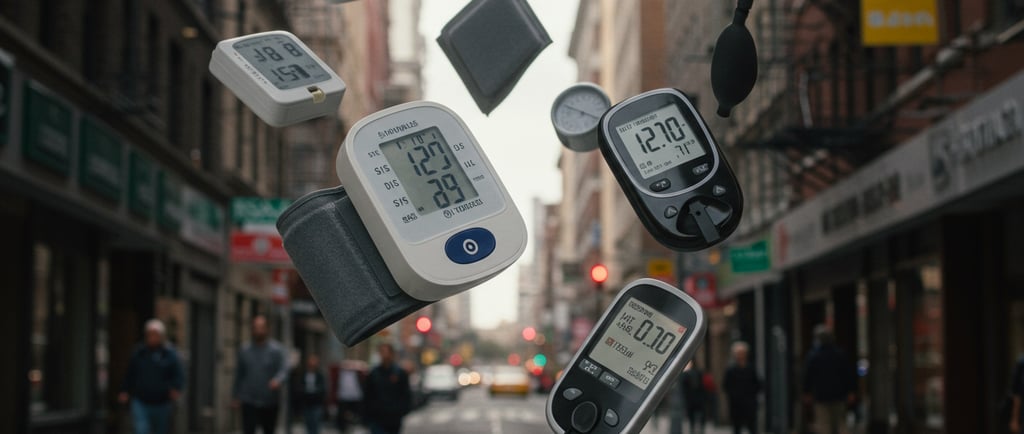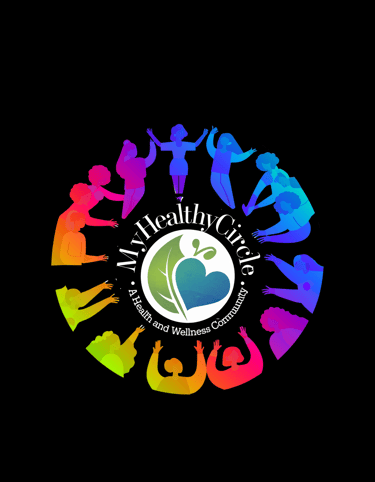10 Things People Get Wrong About High Blood Pressure-that drives ED staff crazy
10 things people get wrong about high blood pressure that could be dangerous
Kimberly Singletary, MD
1/23/20256 min read


Writing this article has been a form of therapy for me, as I’ve witnessed firsthand how well-meaning intentions in blood pressure management can lead to significant illness and even serious medical events. As an emergency physician, I see many patients and families overly focused on blood pressure readings, often missing the bigger picture of overall health and wellness.
Panic over an isolated high blood pressure reading is common, yet these readings are frequently caused by temporary factors like anxiety, stress, or pain rather than a chronic condition. While one elevated reading doesn’t always mean an emergency, persistently high blood pressure—known as hypertension—is a silent threat that can damage critical organs, including the heart, kidneys, and brain.
The misunderstandings surrounding high blood pressure are not harmless. They can delay appropriate treatment, lead to preventable health complications, and cause undue stress for patients and their families. By addressing these misconceptions, debunking myths, and focusing on practical strategies, we can improve health outcomes and empower patients to take control of their well-being.
1. Not Having a Plan for Blood Pressure Treatment
If you’re checking your blood pressure regularly, you should also have a plan for what to do with the numbers. Simply tracking your readings without understanding their implications can lead to unnecessary anxiety or missed opportunities to take action. This plan should be created with your doctor and tailored to your specific needs, ensuring it reflects your health conditions, personal goals, and risk factors.
Blood pressure goals aren’t one size fits all; they can vary depending on your underlying conditions, such as diabetes, kidney disease, or heart disease. For instance, a patient with a weak heart may require stricter control of their blood pressure compared to someone without it. Discuss with your doctor what your ideal range should be, how frequently to measure your pressure, and what actions to take if your numbers fall outside that range.
Additionally, having a plan provides clarity. For example, you might determine with your doctor at what point an elevated reading requires you to rest and recheck, adjust medications, or seek medical help. Without a clear plan, monitoring becomes a stressful guessing game. Monitoring without a plan is like driving without a destination—it gets you nowhere, and it can lead to unnecessary stress or inaction when your health requires attention.
2. Comparing Medication Strengths Based on Dose and Taking family members medications.
One of the most frustrating things I see is patients comparing the doses of their medications to those of family members or friends. For example, 25 mg of metoprolol is not necessarily “stronger” than 10 mg of lisinopril. These are entirely different medications with unique mechanisms of action. Metoprolol lowers heart rate and may not be suitable for someone with an already low heart rate, while lisinopril is an ACE inhibitor that works on the kidneys and blood vessels. Each medication is designed to address specific physiological needs, and their dosages cannot be compared like apples to oranges.
Unfortunately, I’ve seen serious complications arise from this "do-it-yourself" adjustment of medications. Patients who take a family member’s “stronger” medication risk dangerous side effects, such as excessively low blood pressure, fainting, or organ damage. If you feel your current blood pressure medication isn’t working, resist the urge to make changes on your own. Instead, contact your doctor to discuss your concerns and develop a safe, effective plan to adjust your treatment if necessary. Your health deserves professional guidance—don’t gamble with it.
3. Checking Blood Pressure Many Times in One Hour Leading to increase due to stress
If you’re feeling anxious about your blood pressure and find yourself checking it repeatedly—up to many. times in an hour—you may worsen your stress and elevate your readings even further. Obsessively monitoring it during moments of heightened anxiety creates a harmful cycle. Each small change on the monitor can lead to overanalysis and panic, especially if family members are also observing and commenting on the readings. This hyperfocus on every degree of change only increases stress, leading to even higher blood pressure levels.
Instead of overchecking, aim to take a single, calm reading in a relaxed setting. Find a quiet space free from distractions, and sit comfortably for several minutes before measuring. If you feel fine and don’t have any symptoms of elevated blood pressure, consider focusing on stress reduction techniques such as deep breathing exercises, meditation, or gentle physical activity. These practices can help lower your blood pressure naturally and reduce anxiety over the numbers.
In my experience, it’s rare to see a patient with normal blood pressure readings after they’ve checked it 10 times in an hour. Stress from repeated measurements almost always causes their blood pressure to spike, creating misleading results. So, take a breath, relax, and resist the urge to keep checking.
However, if you’re experiencing symptoms of significantly elevated blood pressure, such as severe headache, dizziness, chest pain, or shortness of breath, don’t wait—call your doctor or go to the emergency department immediately for evaluation.
4. Expecting Immediate Blood Pressure Normalization in the ED
Many patients get upset when I don’t lower their blood pressure to normal levels in the emergency department. However, both the American College of Emergency Physicians (ACEP) and the American Academy of Family Physicians (AAFP) recommend against aggressively lowering asymptomatic elevated blood pressure in the ED. Rapid reductions can lead to poor blood flow to the brain and other vital organs, causing dizziness, fainting, or even stroke-like symptoms. The goal in the ED is to stabilize, not normalize, your numbers—long-term management belongs with your primary care doctor.
5. Using Alternative Methods Without Checking Progress
I love when patients take charge of their health, but I’ve seen too many who say they’ve been treating their blood pressure with garlic, diet, and exercise for years—without ever checking their readings. If you’re not monitoring your blood pressure, you’re flying blind. I’ve seen patients with renal disease and other complications from untreated hypertension because they relied solely on unproven methods without tracking their numbers.
6. Ignoring the Role of Sleep
Sleep is a major factor in blood pressure control, yet many people overlook it. Sleep disorders like insomnia or sleep apnea can disrupt the natural hormonal balance that regulates blood pressure. If you’re struggling with high blood pressure, poor sleep could be a contributing factor, and addressing it might make a significant difference.
7. Insisting on Low Blood Pressure for Grandma
Grandma’s blood pressure might need to run higher than average, especially if she experiences orthostatic hypotension (low blood pressure when standing). For elderly patients, aggressively lowering blood pressure can lead to fainting and falls, which are far more dangerous than slightly elevated readings. Let’s keep Grandma safe!
8. Snacking on Chips While Waiting to Be Seen
It’s baffling to me when patients waiting to be seen for high blood pressure pull out a bag of chips. Sodium is one of the biggest contributors to hypertension, and eating salty snacks in the middle of a health crisis is counterproductive. Bring a healthy snack or drink water instead.
9. Failing to Find Inner Peace While Waiting
If you're waiting to be seen for high blood pressure, the best thing you can do for yourself is to try to relax. Stress can spike your blood pressure even more, so taking a moment to calm your mind can make a difference. If your family or anyone with you is unintentionally adding to your stress, it’s okay to politely ask them for some space so you can focus on yourself. Let’s be real, the emergency department isn’t exactly the most peaceful place, but bringing something like headphones can help you tune out the noise and chaos. Listening to calming music, a podcast, or even white noise can give you a bit of an escape and help you settle your nerves.
10. Taking Decongestants Without Realizing the Risks
If you have elevated blood pressure or hypertension, it's essential to choose congestion medications carefully to avoid raising your blood pressure further. As Chris Rock pointed out about his mom, some people treat Robitussin like it’s a cure-all for every ailment, but when it comes to managing congestion with hypertension, it’s not that simple! You’ve got to be cautious because certain over-the-counter options can do more harm than good. Over-the-counter decongestants, like pseudoephedrine, can raise blood pressure and are not safe for people with hypertension. Always check the labels on medications and consult your doctor or pharmacist if you’re unsure. That sinus relief isn’t worth the risk of a hypertensive crisis.
What Cold Medications to Avoid when you have high blood pressure:
AVOID Pseudoephedrine: Found in Sudafed and similar medications.
AVOID Phenylephrine: Found in many “PE” medications.
Combination medications with “D” in the name (e.g., Claritin-D, Allegra-D, Robitussin -D), as they often contain decongestants that can raise blood pressure.
Always double-check the ingredient list and look for labels that say "Safe for High Blood Pressure" or "Decongestant-Free." Be smart and consult your doctor or pharmacist if you’re ever unsure about what’s safe for you.
Bonus 11. Expecting the ED to Manage Blood Pressure Long-Term
The emergency department is designed for immediate, short-term care—not long-term blood pressure management. You need a plan with your primary care doctor to prevent the long-term complications of hypertension, such as kidney disease, heart failure, or stroke. The ED can stabilize you, but the real work happens outside the hospital.
Final Thoughts
Whew, I feel better now—thank you for taking part in my therapy session! Managing blood pressure is a partnership between you and your healthcare team, and understanding these common misconceptions is a step in the right direction. Remember, I’m a doctor, but I’m not your doctor. Always consult your healthcare provider for personalized advice and treatment plans.
#HeartHealth #BloodPressureTips #HypertensionManagement #HealthyLiving
